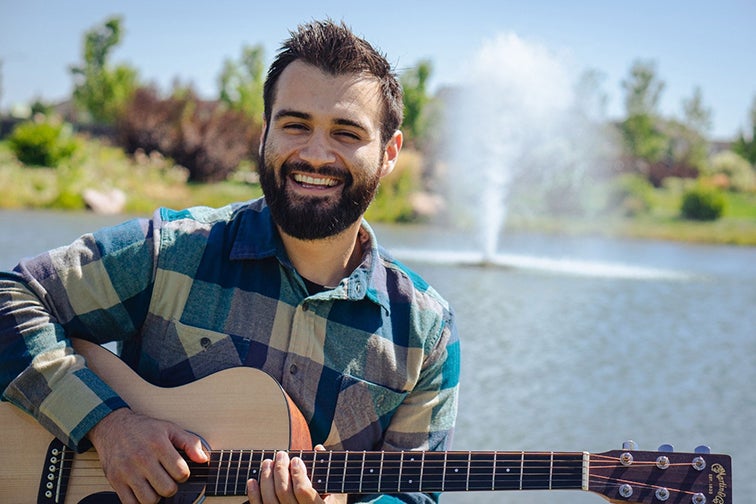Social work isn’t what you might think, and the students pursuing social work degrees through Boise State’s School of Social Work are as different as their passions and goals for their lives and futures. That’s a very good thing – the challenges they face in their internships, graduate assistantships and coursework show just how needed their perspectives and skills are.
Here’s a sneak peek at the “social workers” of the future (spoiler alert: The term hardly captures the range of what they’re interested in – and what they might accomplish.)

Sal Padilla
Advanced-standing master’s student
Sal Padilla graduated from Boise State with his bachelor’s in May 2021 and went directly into the master’s program, bypassing the foundational first year of the master’s program. This advanced-standing feature has made it easier for Padilla and others like him to complete the master’s in a year; he is now well into what will be for him a one-year master’s program and headed toward a spring 2022 graduation.
Born and raised in Idaho, Padilla started his higher education journey at the College of Western Idaho. At the time, he was focused on mental health and specifically, psychology. He transferred to Boise State in 2018 and followed what turned out to be very good advice: look into the social work program – and take Heather Witt for Social Work 101.
Witt, a much-loved assistant professor at Boise State and a licensed social worker with a doctoral degree in her field, is among other things a winner of the university’s Golden Apple Award, bestowed by the Associated Students of Boise State on faculty members who stand out in students’ eyes.
Her influential class, which hit on the themes of social justice and the history of the field, galvanized Padilla. He recalls thinking, “‘This is what I want to do.’
“You could tell she was inspired by what she does,” he said. “I was like, ‘I definitely could get into this.’
“It solidified the whole thing,” Padilla continued. “It kind of just opened me up and made me realize that social work was such a broad subject. That kind of drew me toward it.”
Padilla realized that a master’s in social work was going to provide both the range – he has explored poverty, homelessness and social welfare programs, among other topics – to hold his interest and the training that would be needed for provider status. He was particularly struck by the reflective component to the program and how useful that is in working with those he is already encountering in his involvement in the field.
“It has challenged me to think about myself and my point of view,” he said. “It’s given me the conception that I need to meet my client where they’re at and understand their social environment. We’re meeting them at the lowest points of their lives … It’s a way for me to kind of check myself.”
Fundamental to the program is field work, and through that feature, Padilla has had the opportunity to intern with University Health Services. He is managing a small caseload of clients and has had the opportunity to be involved in some triage counseling. During the pandemic, he is receiving an exceptional training opportunity.
“It’s a little bit more of what I was expecting,” Padilla said, then, correcting himself, adds, “Actually a lot more of what I was expecting.
“There’s good days and bad days,” he said. “I think overall, I feel really happy and glad I got into the profession when I did. It’s definitely something I feel passionately about.”